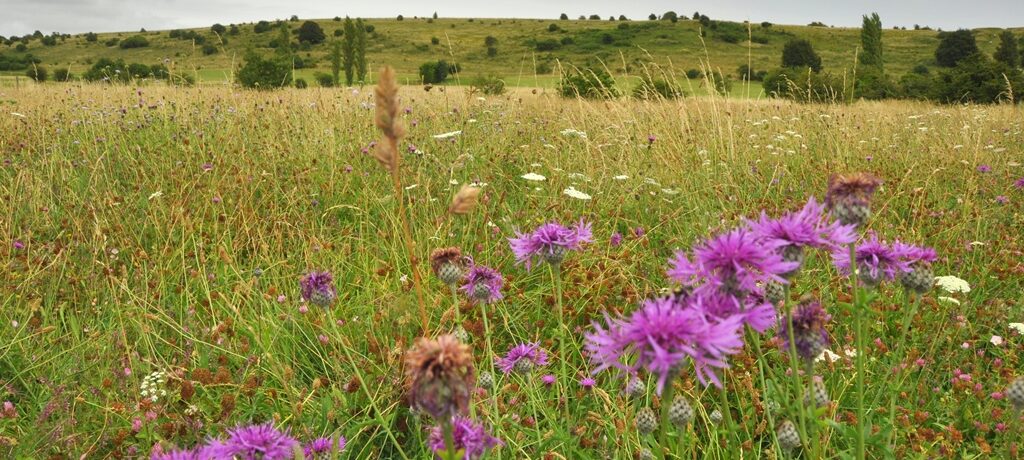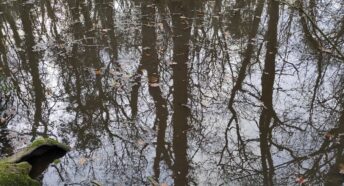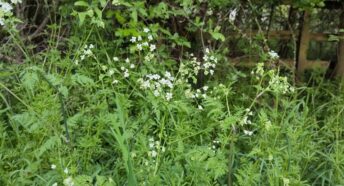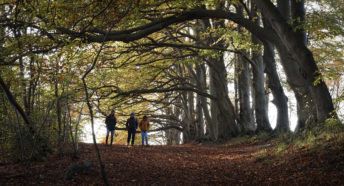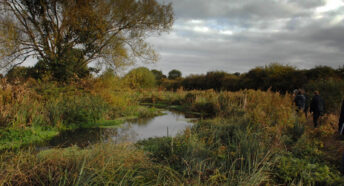Celebrating sustainable farming
With changes to farming subsidies high on the political agenda, concern over food security and growing public support for environmentally friendly farming methods, we look at some projects from across the history of the Living Countryside Awards.
Wassledine were one of our early winners, earning a CPRE Mark in 2010 in the Sustainable Living category. Our awards brochure described the project as “A small farm business run by a dedicated team who aim to make a viable living from the land whilst at the same time leaving it in as good, or better, condition in terms of productivity, beauty and biodiversity as when the project started. 70 acres of old water meadows, new hedgerows and commercial willow and hazel plantations host varied wildlife habitats and a herd of Red Poll cattle, whose beef forms one of the farm’s main products.”
We caught up with Jane and Guy Lambourne from Wassledine earlier this year to find out how the business has developed since they won the award.
The Wassledine story
“It was a huge surprise and a great pleasure to be awarded a CPRE Living Countryside Award in 2010 and the twelve years since have flown by. We are still here in Gravenhurst, still coppicing willow and hazel and still producing beef from a small suckler herd of pedigree Red Poll cattle.
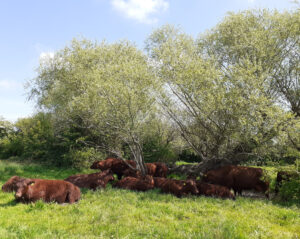
We have benefitted greatly from Defra’s Higher Level Stewardship Scheme. It has allowed us to improve the quality of habitats on our small farm which is something of an oasis of grassland and sprawling hedges in a desert of arable. Our current agreement ends later this year and the future looks exciting. Although nothing is certain yet, there are some important developments in the pipeline. We hope to plant another hazel copse (with funding from the Forest of Marston Vale). This will be worked commercially and add significantly to the coppice side of the business. We hope to create several ponds and develop a mosaic of scrub and trees in one field, to benefit great crested newts and a whole range of other species (this thanks to funding from the Newt Conservation Partnership). Finally we aim to further improve our old water meadows alongside the River Hitt, through a new Mid-Tier Countryside Stewardship agreement with Natural England.
At the end of 2021, we let an acre of land to a business partnership called Hillside Market Garden and they are already producing fantastic vegetables using sustainable methods. We like Jenny and Simon’s approach and it’s good to have them around.
Although change brings potential for stress, we are looking forward to the next chapter in our stewardship of this small corner of Bedfordshire.”
Three more farming winners
Riverside Dairy won the 2021 Made in Bedfordshire award. Their family farm sits along the banks of the River Great Ouse as it meanders through the beautiful Bedfordshire countryside. They use the fresh milk from their free range, pasture fed herd of cows to make artisan ice-creams. The herd of cross-bred Jerseys and Friesians produces high quality milk which is just perfect for making ice-cream. Customers not only love the taste of the ice cream, but love the fact they can see the cows, and that the ice cream has been made on-site, becoming far more aware of food provenance, food miles and standards. Our judges praised the way the business was shifting to a more sustainable way of farming – and the amazing ice cream!
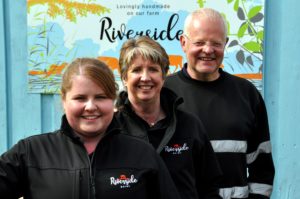
In 2016, the BCN Wildlife Trust’s Galley and Warden Hills grazing project won a CPRE Mark in the Biodiversity and Landscape Improvement category. The stunning chalk downland site is home to several rare chalkland plant species, butterflies such as the Small Blue and Chalk Hill Blue and is a breeding area for the Skylark and Corn Bunting. It is located on the urban fringe of Luton and is popular with local residents and dog walkers. To maintain its open appearance it needs continuous scrub control and also livestock grazing. The Wildlife Trust set up an impressive project to carefully introduce Red Poll cattle for this purpose, they needed to install fencing and water supplies, and engage local residents with the aims. The animals have been brought in to graze in selected areas each year since 2014 and already the benefits to the local wildlife are visible on the hillside.
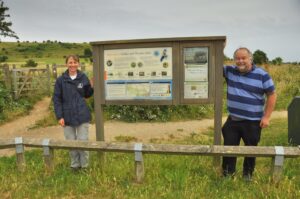
Barton Hill Farm in the Chilterns won their first award which was for Landscape Improvement in 2009. The Songs and Plovers project gave attention to agricultural practices which encourage wildflowers and wildlife with broad field margins and woodlands designed to attract birds. The farm encouraged visitors and had a strong educational theme, wanting to demonstrate that commercial farming and environmental protection can be compatible.
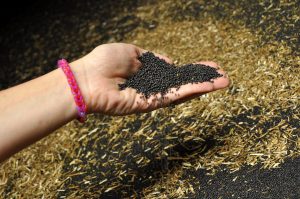
In 2014, they won a CPRE Mark for Sustainable Enterprise. The Mrs Middleton’s brand started by producing high quality cold-pressed rape seed oil, farming in a way that enhances biodiversity on the land. The idea came from the realisation that many visitors to the countryside have little knowledge of how healthy, good quality foodstuffs are produced. The oil bottles show a map reference to indicate exactly in which field the seed was grown and bears a Made in Bedfordshire label. Our judges at the time said “the company is set to become a leading sustainable food producer, with the oil already being used in top restaurants and selling at farm shops across England.” This turned out to be a sound prediction and Mrs Middleton’s won a second CPRE Mark in 2018. This time they had collaborated with Phil Fanning of Paris House restaurant in Woburn to produce two salad dressings, using their rapeseed oil, developing a strong working relationship between two local and successful food-based companies.
A version of this article first appeared in the spring 2023 edition of our magazine for members, Bedfordshire Matters.
